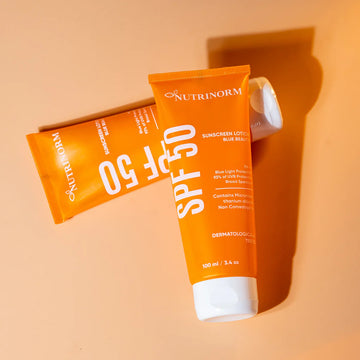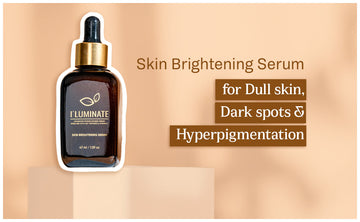When it comes to skincare, sunscreen is an essential product you should never skip. Besides shielding your skin from harmful UV rays, it also enhances skin texture, prevents aging, and guards against numerous skin issues associated with sun exposure.
Without a protective layer, harmful UVA and UVB rays can penetrate deeply into your skin, disrupting cells and causing DNA mutations. It's crucial to choose a sunscreen with the right SPF for your skin type to manage and prevent existing and potential skin problems caused by sun exposure.
Let's explore the importance of SPF in sunscreens and how it can significantly benefit your skincare routine.
What is SPF?
SPF stands for Sun Protection Factor, which is present in sunscreens. SPF levels indicate the degree of protection a sunscreen offers against the sun's harmful UV rays. The higher the SPF level, the longer your skin is protected. However, a common misconception is that higher SPF levels provide double the protection compared to lower SPF levels.
In reality, SPF indicates the duration of protection from UV rays, not the strength of protection. So, whether you apply SPF 25 or SPF 30 sunscreen before leaving the house, your skin will be shielded from the sun. However, it is important to reapply sunscreen throughout the day, as most sunscreens wear off after 2-3 hours of sun exposure.
The Importance of SPF in Sunscreen
Sunscreen provides incredible benefits for your skin. Here are some key reasons why applying sunscreen daily is crucial:
-
Protection from Sunburn
Prolonged exposure to UV rays can cause sunburn, leading to skin irritation and burning sensations. By applying sunscreen daily, you can prevent harmful UVA and UVB rays from penetrating your skin, thus avoiding sunburn and sun damage. -
Prevention of Premature Skin Aging
Sunscreen plays a significant role in preventing premature aging. If you're looking for skincare products to combat early signs of aging, daily sunscreen application is essential. Opt for sunscreens with active ingredients like niacinamide, which can enhance other skincare products and offer lasting benefits. -
Reduction of Skin Inflammation
For those sensitive to the sun, skin inflammation is a common issue. Applying a sufficient amount of sunscreen before sun exposure can significantly reduce inflammation. Choose sunscreens with gentle ingredients like zinc, which provide effective sun protection without causing irritation or redness. -
Improved Skin Texture
Sun damage can make your skin appear dull, uneven, and rough by breaking down collagen molecules. Wearing sunscreen daily helps maintain a smoother, more even-toned complexion and promotes balanced skin pH levels. -
Reduction of Dark Spots
Exposure to UVA and UVB rays can lead to hyperpigmentation or dark spots. Unlike sun tanning, hyperpigmentation can take a long time to heal. Daily sunscreen application helps prevent dark spots, offering your skin the care and nourishment it needs.
Understanding SPF Ratings
Now that you know what SPF is and why it's important to apply sunscreen regularly, let's delve into SPF ratings typically found on sunscreen packaging.
SPF 15
SPF 15 blocks about 93% of harmful UV rays. It offers protection that is 15 times more effective than your skin’s natural defense against sunburn without sunscreen. SPF 15 is ideal for days when you are not directly exposed to intense sunlight but still want a protective layer for your skin.
SPF 30
A sunscreen with SPF 30 can block up to 97% of UVB rays from infiltrating your skin. This product is suitable for everyday use and moderate sun exposure. Offers adequate protection for daily activities.
SPF 50
Lastly, sunscreens with SPF 50 or beyond can block approximately 98% of UVB rays. This product is best suited for people with fair or sensitive skin. Beneficial for activities that involve prolonged sun exposure or intense conditions. For best results.
In conclusion, incorporating sunscreen into your daily skincare routine is vital for protecting against sunburn, premature aging, inflammation, and dark spots, while also improving skin texture. Ensure you choose a sunscreen with the appropriate SPF and ingredients suited to your skin type to maximize these benefits.




